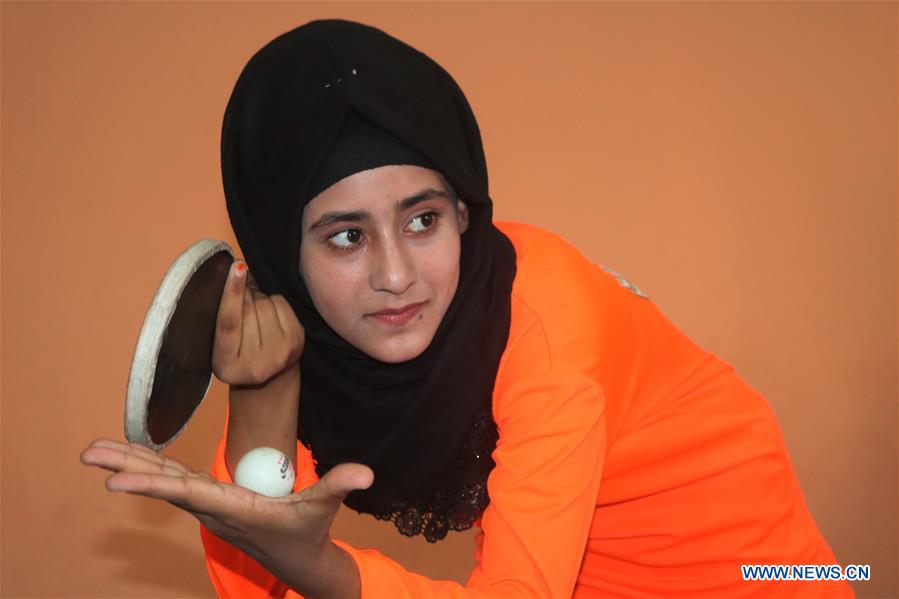In the northern Afghanistan province of Jowzjan, you can hear the sounds of change. About 250 miles north of Afghanistan's capital Kabul, the remote province borders Turkmenistan. Afghan society has begun to take steps toward modernity since the fall of Taliban rule in 2001, seeing its first ever democratic transfer of power in 2014. Still, any changes to traditional values are slow to take root, especially in rural areas. For girls growing up in this environment, any break from custom is an act of extreme bravery. The simple act of going to school can make a girl a target of terrorist attacks. In the face of deep-rooted societal oppression, many girls in Jowzan and other regions in Afghanistan are finding inspiration in the simple joys of table tennis. Nargis Faiz, a 17-year-old girl, is one such athlete. "I've been playing ping-pong since I was nine years old and I play every day as it's a popular sport among girls here in Jowzjan," she says. Faiz is working hard to become a table tennis champion, and is not letting the ever-present threat of violence stop her. "I have no concerns about the security problems and regularly attend practice at the venue in Shiberghan city to improve my skills," she says. Basira, a member of Afghanistan's table tennis team, can certainly attest to the added layer of challenges facing women athletes in her conservative, volatile country. "Of course there are challenges, especially the security problems facing us, but we have to be brave and overcome all the obstacles and challenges," said Basira. "If we want to become a champion, we have to ignore all the threats." According to Mashal Hashimi, head of the Jowzjan Table Tennis Federation, there are now 33 women on the province's team, with an ever-increasing number of applicants. The sound of change is audible in Afghanistan, growing louder each time another girl defies oppressive tradition, picks up a paddle and smashes a 40mm plastic ball across the net.
More at Xinhua
